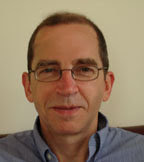The motivation for unexpected and unlikely major policy shifts by national leaders will only gain full clarity when the details of their financial positions are known - AFTER they leave office as well as before.
Hundreds of millions of dollars are available from a variety of industry lobbies, as well as from foreign governments, if offering de facto pensions via membership in the Carlyle Group, for example, could sway the policy decisions of a Prime Minister. George Bush Sr. and John Major have such memberships.
Here's what The Guardian was saying 18 months before the invasion of Iraq:
"THE EX-PRESIDENTS' CLUB
Oliver Burkeman and Julian Borger
Wednesday October 31, 2001
The Guardian
It is hard to imagine an address closer to the heart of American power. The offices of the Carlyle Group are on Pennsylvania Avenue in Washington DC, midway between the White House and the Capitol building, and within a stone's throw of the headquarters of the FBI and numerous government departments. The address reflects Carlyle's position at the very centre of the Washington establishment (...)
Last year, George Bush Sr and John Major travelled to Riyadh to talk with senior Saudi businessmen. In September 2000, Carlyle hired speakers including Colin Powell and AOL Time Warner chair Steve Case to address an extravagant party at Washington's Monarch Hotel. Months later, Major joined James Baker for a function at the Lanesborough Hotel in London, to explain the Florida election controversy to the wealthy attendees.
We can assume that Carlyle pays well. Neither Major's office nor Carlyle will confirm the details of his salary as European chairman - an appointment announced shortly before he left the House of Commons after the election - but we know, for the purposes of comparison, that he is paid £105,000 for 28 days' work a year for an unrelated non-executive directorship. Bush gives speeches for the company and is paid with stakes in the firm's investments, believed to be worth at least $80,000 per appearance. The benefits have attracted political stars from around the world: former Philippines president Fidel Ramos is an adviser, as is former Thai premier Anand Panyarachun - as well as former Bundesbank president Karl Otto Pohl, and Arthur Levitt, former chairman of the SEC, the US stock market regulator.
Carlyle partners, who include Baker and the firm's chairman, Frank Carlucci - Ronald Reagan's defence secretary and a former deputy director of the CIA - own stakes that would be worth $180m each if each partner owned an equal slice. As in many areas of its work, though, Carlyle is not obliged to reveal the details, and chooses not to.
Among the defence firms which benefit from Carlyle's success is United Defense, a Virginia-based contractor which makes vertical missile launch systems currently on board US Navy ships in the Arabian sea, as well as a range of other weapons delivery systems and combat vehicles."
So who benefited from Tony Blair's stand on Iraq? Tony Blair, obviously, either politically, emotionally or financially. Did it help him politically? Or does it relate to his interest in Roman Catholicism? Or are there millions of dollars available to him as a reward for his stand?
Who might be susceptible to such financial offers? Political leaders in which countries?
Subscribe to:
Post Comments (Atom)



No comments:
Post a Comment